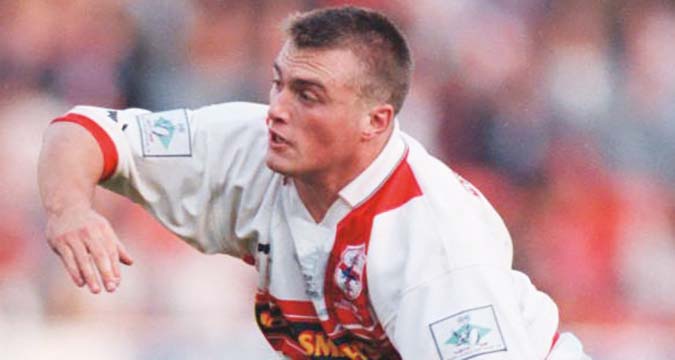 Nick Pinkney had never played in the top flight when he represented England in the 1995 World Cup.
He started at Ryedale-York and was part of the sensational Keighley side that was denied promotion in 1995 by the unveiling of Super League.
He scored for Sheffield in their famous Wembley triumph of 1998 before playing for Halifax, Salford and
Nick Pinkney had never played in the top flight when he represented England in the 1995 World Cup.
He started at Ryedale-York and was part of the sensational Keighley side that was denied promotion in 1995 by the unveiling of Super League.
He scored for Sheffield in their famous Wembley triumph of 1998 before playing for Halifax, Salford and Rugby League Heroes: Nick Pinkney
 Nick Pinkney had never played in the top flight when he represented England in the 1995 World Cup.
He started at Ryedale-York and was part of the sensational Keighley side that was denied promotion in 1995 by the unveiling of Super League.
He scored for Sheffield in their famous Wembley triumph of 1998 before playing for Halifax, Salford and
Nick Pinkney had never played in the top flight when he represented England in the 1995 World Cup.
He started at Ryedale-York and was part of the sensational Keighley side that was denied promotion in 1995 by the unveiling of Super League.
He scored for Sheffield in their famous Wembley triumph of 1998 before playing for Halifax, Salford and 